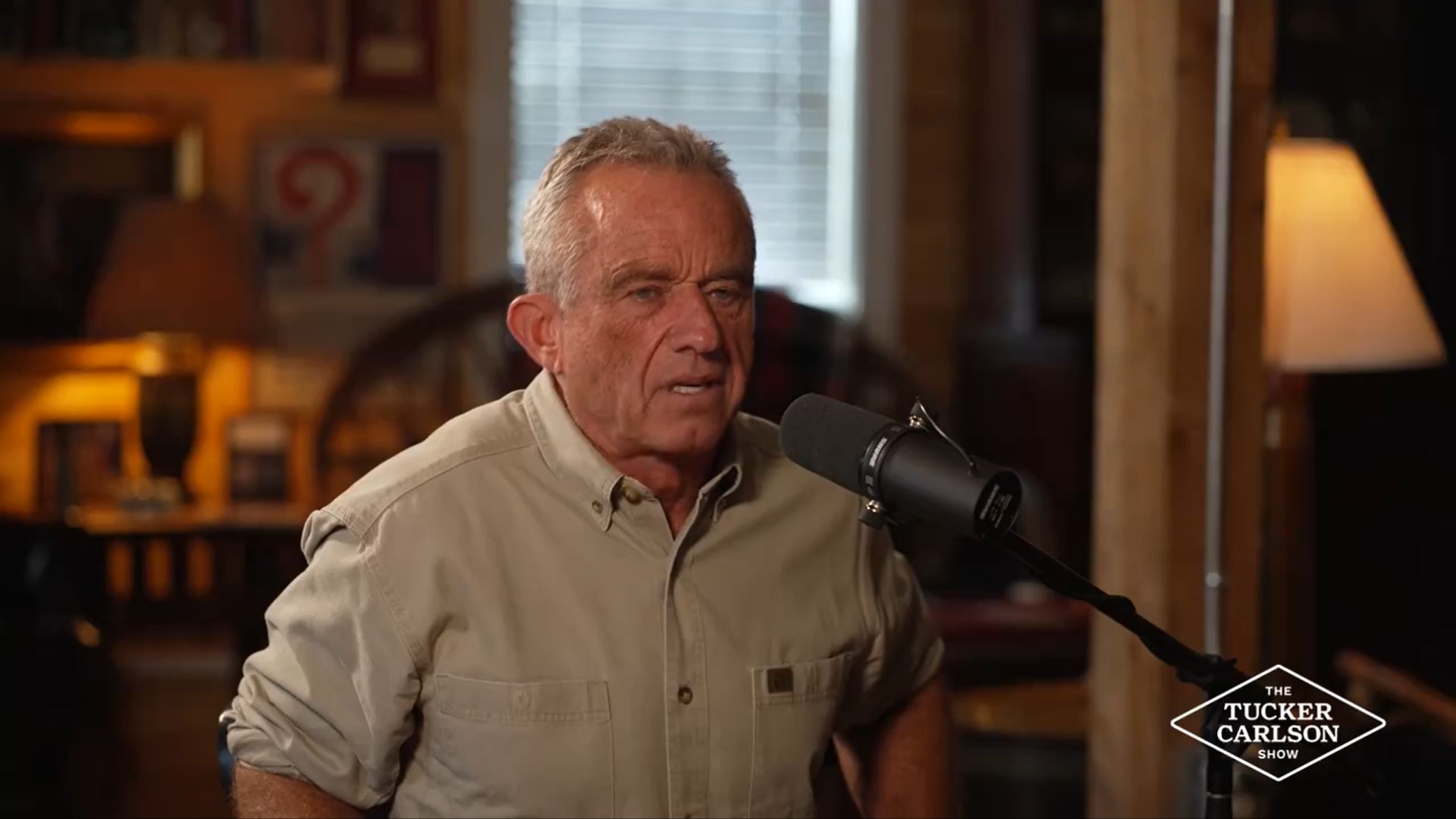In a riveting interview with Tucker Carlson, Robert F. Kennedy Jr. made a bold declaration that sent shockwaves through political circles—he is open to assuming the role of CIA Director. This revelation was not just an idle statement but a direct challenge to the entrenched powers within the intelligence community. Kennedy, known for his forthright approach, acknowledged the formidable obstacles he would face in securing Senate confirmation, due to the staunch protection of intelligence agencies by influential committees in both the Senate and the House.
Kennedy explained that these committees have long served as gatekeepers for the intelligence community, safeguarding its interests and ensuring that only those aligned with their agenda ascend to leadership positions. His appointment as CIA Director, he suggested, would pose a significant threat to these established powers, making his confirmation a daunting, if not impossible, task.
The interview took another explosive turn when the conversation shifted to President Trump’s unrealized promise to declassify documents related to the assassination of Kennedy’s uncle, President John F. Kennedy. RFK Jr. disclosed that Trump had been intent on fulfilling this promise but was dissuaded by former CIA Director Mike Pompeo. According to Kennedy, Pompeo “begged” Trump not to release the files, arguing that their publication would lead to a “catastrophe.” This revelation casts a shadow over the CIA’s motives, raising questions about what these documents might contain and why they remain shrouded in secrecy over six decades later.
https://twitter.com/MJTruthUltra/status/1828253794578375036
Tucker Carlson did not hold back, labeling Pompeo as a “criminal” and challenging the former CIA Director’s motives. Carlson’s pointed commentary underscored a bipartisan pattern of withholding these documents, suggesting a deep-seated institutional desire to protect the CIA from potential implications in the assassination plot. Carlson’s skepticism mirrored the sentiments of many who question why, after so many years, the files have not been released, especially when those directly involved in the events have long since passed.
RFK Jr.’s candid discussion with Carlson highlights the ongoing tension between transparency and secrecy within the U.S. government. His willingness to take on a role like CIA Director, coupled with his call for declassification of the JFK assassination documents, positions him as a formidable advocate for openness. Whether these revelations will lead to any tangible changes remains uncertain, but they undoubtedly fuel the debate on the balance of power and accountability in American intelligence operations. As the conversation continues, the public and policymakers alike must grapple with the implications of these disclosures and the enduring legacy of secrecy surrounding one of the nation’s most pivotal historical events.


Leave a Comment